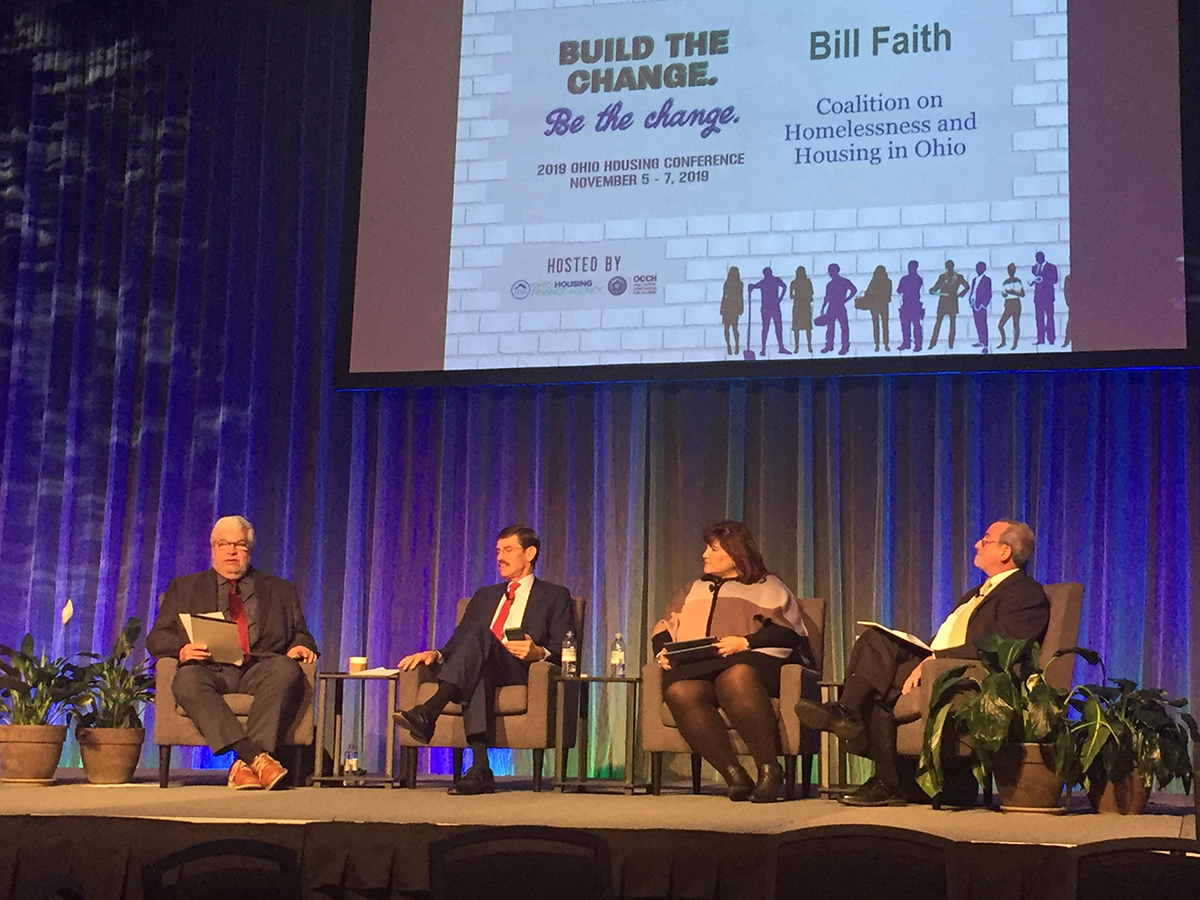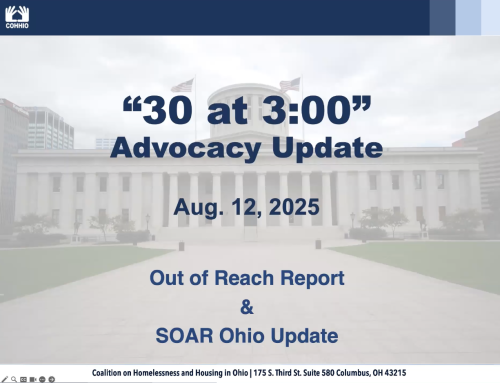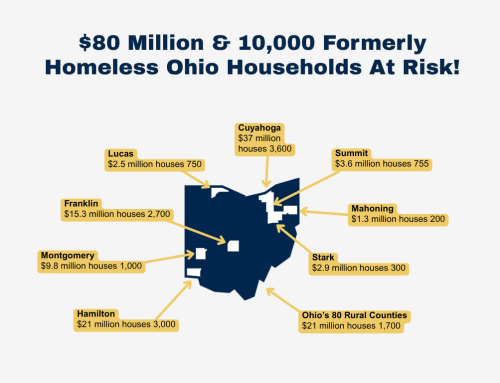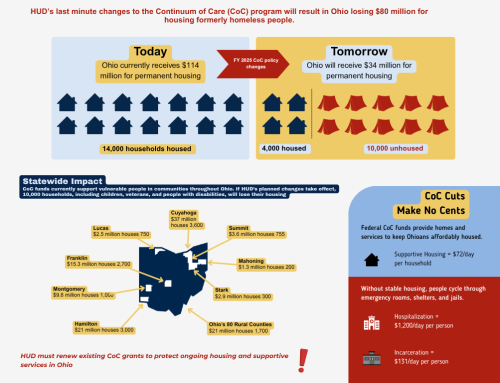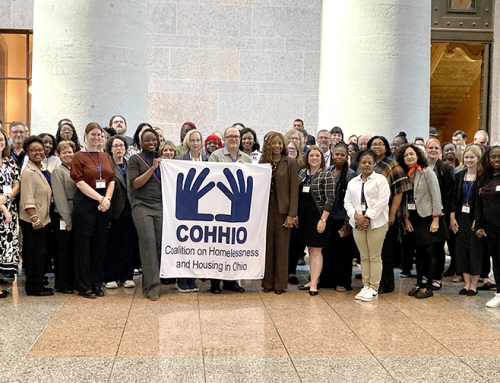Advocating for people experiencing housing problems can be a frustrating job. In a political system that trades on money and influence, it’s tough to get politicians to focus on the needs of people who have neither.
This Thanksgiving, however, I gave thanks for several positive developments that show glimmers of hope that our elected leaders are starting to pay more attention to people struggling to escape homelessness.
At the recent presidential debate in Atlanta, several candidates discussed ambitious and creative ideas for addressing America’s growing shortage of affordable housing after the National Low Income Housing Coalition mobilized local partners to urge debate moderators to ask about housing issues. As part of NLIHC’s Opportunity Starts at Home campaign, we recently wrote an op-ed in the Columbus Dispatch connecting housing insecurity to college debt, rising healthcare costs and other issues the candidates frequently discuss.
Meanwhile, Congress was on track to boost federal housing and homeless spending for the third time in a row, even though President Trump has proposed deep cuts to HUD programs every budget he has proposed. Unfortunately, the two chambers have not yet finalized a budget agreement, opting instead for another stopgap measure to fund the government through Dec. 20. These ongoing “continuing resolutions” have a variety of negative consequences for administering housing programs.
Here in Ohio, the new state budget increased the Ohio Housing Trust Fund by an additional $3.5 million/year that will flow to local homeless and affordable housing programs throughout the state. In addition, the budget includes a new $5 million appropriation for the Ohio Department of Health to address homelessness among youth and pregnant women. ODH is planning to launch an application process in early December, with applications due in early January.
Over the past few months, we’ve had a lot of good conversations with the DeWine Administration about ways the state can help reduce homelessness and housing insecurity. Some of the proposals we’re considering include state funding for local rapid rehousing and homeless prevention programs, rental assistance targeted toward specific populations, a state low income housing tax credit, and, of course, a more robust expansion of the Ohio Housing Trust Fund that could include new revenue.
At the local level, initiatives to reduce evictions and create more affordable housing have been taking root in several cities across Ohio. Cleveland recently became the fourth city in the U.S. to pass legislation to ensure low-income renters with children have legal representation when facing eviction. Cincinnati has passed legislation aimed at expanding tenants’ rights and preventing unnecessary evictions, and local housing advocates are gearing up for a 2020 ballot issue to create a local affordable housing trust fund. In Dayton, the mayor has created an Eviction Task Force. Franklin County’s new budget would increase funding for local homeless programs, while Columbus is working on a plan to increase affordable housing following voter approval of a $50 million affordable housing bond program and creation of a $100 million loan fund.
And lastly, three excellent nonprofit agencies in Ohio recently won grants from Amazon CEO Jeff Bezos’s Day One Families Fund for efforts to fight homelessness in communities throughout the U.S. Congratulations to Bethany House Services in Cincinnati, which was awarded $1.25 million, Great Lakes Community Action Partnership in Fremont, which won $1.25 million, and YWCA Columbus, which received a $2.5 million grant.
There’s a lot of positive momentum at all levels, and for that I’m thankful. We’ll keep pushing our state and federal representatives for the funding and policy changes necessary to end homelessness in Ohio. And who knows? Maybe this time next year we’ll all have a lot more to be thankful for.
Bill Faith
Executive Director
P.S. Your #GivingTuesday donations help support the work we do advocating for an end to homelessness in Ohio – thank you!
